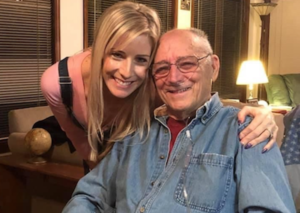The purpose of this blog is to help people come together. This purpose of this blog is NOT to promote a political view. As Louise Phipps Senft says so eloquently, “Overall, my best advice when having political conversations with others is do not try to stand up to others who differ in beliefs. Instead, try to sit down with them.” https://www.vox.com/first-person/2017/8/22/16171270/partisanship-politics-discussion-family. This blog is about how to do just that.
So even though this blog is not to promote any political opinion, I also do have the belief that we are all political beings unconsciously driven by underlying beliefs ingrained in society. So I apologize in advance if any political bias ensues, and feel free to call me out on it (Did I really just say that?). What I’m trying to say is, it is OK and GOOD to have a political opinion! It is just not my purpose here.
Let me start this out by saying, I am no political expert. I embarrassingly have become more interested and informed about current events only in the past six years or so. It all started when I was asked to teach a class at a local university called “Counseling and Human Development in a Multicultural Society.”
Gulp.

“Me? Seriously?” was my response.
Something inside made me say yes. This was going to be my class. I had this feeling of intense fear and excitement that comes before any big life transformation.
The minute I opened the book to create my class syllabus, I knew I was in for the ride of my life. I regretted saying yes. And I’ll never forget my first night teaching the class. I sweated and tripped over all my words. There are many reasons for this.
Growing up, I internalized society’s message to avoid talking politics. I avoided politics, or anything controversial, at all costs. My family was NOT on the same page politically. I always felt everyone in my family handled it pretty well. But I was also always slightly a wreck if someone brought up politics. My childhood brain interpreted this to mean that politics is bad/evil and to be avoided at all costs. Hmmmmm. See the problem here?
I never expected my multicultural counseling class to be so very political. There was no denying it. Politics was written all over this class. And it was going to make people MAD. And it did. It purposely triggered hot topics and pushed buttons that needed to be pushed.
I could tell myself that I was safe to teach this topic, and it was okay if not everyone liked me. But my body and brain did NOT believe it. My body and brain would go into full trauma mode at times. I ended up teaching the class for about five years, so there was plenty of trauma. The only way through the trauma was through the trauma, not around it. THAT I knew from all my mental health experience.

And by the way, I did not go into Psychology/Coaching/Counseling and Therapy to become a political activist. It was never on my radar. “I just want to help people” was what I said. Again, this idea if held by an entire society (or an entire profession) would be hugely problematic. It’s something to think about the next time you hear, “I don’t want to talk about politics”. I truly believe that talking about politics is not the problem. It is HOW we talk about politics that is literally dividing families and ending marriages right now.
If you can remember only one thing from this blog, I hope it is the idea of getting into the energy of sitting down together instead of standing up. Below are some tips to remember when the topic of politics comes up while “sitting down” with family this holiday season:

1. Listen. As Patrick Schmadeke says in his blog, “Listen first.” https://grottonetwork.com/navigate-life/relationships/how-to-talk-about-politics-with-family/. I have been teaching people to listen now for more years than I can remember. When is the last time you truly listened to what someone else is saying without thinking about what you are going to say next? Yes I know. What you have to say is right, right? Preaching to the choir over here. Try to learn something new (In other words, stop thinking you know everything). Stop and listen to what the person is saying. Try to see things from their perspective. Use empathy even if you disagree. Use the acronym SOLER. We teach this to our Fundamentals of Counseling Classes: SOLER – Sit Squarely. Open Posture. Lean Forward. Eye Contact. Relax.
2. No name calling or judging. Please do not resort to name calling. Do your best to resist judging someone else for their beliefs. This is what I see all the time. All sides feel judged by all other sides for their beliefs. And we ARE all judging each other! Just because someone supports a particular candidate does not have to mean anything else about that person. In his book, How to Stop the Pain, Dr. James B Richards explains that judgment is very different from observation. Observation turns to judgment the minute we think we know why something is happening. For example, observing that someone supports a particular political candidate is not a judgment. But the minute you think you know WHY that person supports that candidate, you are making a judgment. And the minute you put all people who support one candidate into one category, you are cutting off someone else’s chance to grow and be free along with your own. We need to stop putting each other into categories. We are never going to get anywhere judging each other. Along the same lines, stick to individual issues, not particular candidates. As Suzanne Degges-White, chair of the department of counseling at Northern Illinois University says, “You need to keep the conversation only about individual issues. Do not connect it to the left or to the right, or to a particular political candidate. The connection people feel with their city’s sports team is the same way they feel with political candidates. If you attack someone’s sports team, they are never going to agree with you, no matter how qualified your position is.”
3. Ask yourself, “Who do I want to be right now? What is my purpose here? What is my role?” Are you someone’s daughter, father, son, niece, mother? Remember that too. Their views deserve respect as well as your own. Try journaling the morning before the gathering. Ask yourself, “Who do I want to be today?” Strive to be THAT person even in the face of conflict.
4. Look for common ground. What do you agree on? What do you both really want? Is there something you need to think about more? In the article, https://www.verywellfamily.com/when-families-disagree-about-politics-4112342, by Carly Snyder Md, Dr. Snyder gives great advice for “how to exit” a political conversation. Dr Snyer offers instead of saying “We’ll just agree to disagree” which usually involves cutting someone else off, try saying, “You’ve given me something to think about. Let’s talk about something else and come back to this at another time.” Do you feel the difference in energy? One sounds like we’ve just given up. The other one says, let’s grow together.
5. When in doubt, default to love. It helps me to think of aspects of God. As Emmet Fox says in his book Power Through Constructive Thinking, “Prayer is essentially thinking about God, not necessarily addressing God.” It’s about REMEMBERING God. Looking through the lens of God/Love/Harmony/Light makes everything so much more clear. It puts things into proper perspective. Recently I posted something slightly political on social media. A neighbor of mine, who I know has different political beliefs than me, wrote something by which I could have chosen to be offended. But I remembered love. When I thought of love, my hurt feelings disappeared. It was such a relief not to feel connected to his opinion anymore. I was able to feel love for him despite his differing beliefs. Getting stuck in the political internet-ethers is particularly dangerous, and probably deserves a whole separate blog. Remember to always ground yourself in the present moment. What really deserves your attention right now?

People sometimes erroneously think sending love or forgiveness means you let people walk all over you. In my life, this has been quite the opposite. When I was stressed and shy, I was not feeling love for anyone, especially myself. I had so much self-hatred that I couldn’t even fathom sending love to anyone. And I could not share my beliefs, because I did not know what they were. Self-hatred takes up a lot of energy. There’s none left to help you figure out who you are. Self-love comes with the strength to love yourself and others with power and boundaries.
Remember the loving kindness meditation? “May you be well. May you be peaceful. May you live your life with ease.” This can be a great tool before going into any kind of a gathering, politics or no politics. This idea of sending love helps you to create even stronger boundaries, because you can do it in a loving way. It helps you to actually share your opinion and beliefs, because you can do it in a way where you can think straight. You feel better about yourself when you can be loving. Remember the meditation starts with, “May I be well. May I be peaceful. May I live my life with ease.”
By the way, it’s possible to be loving AND have opinions. It’s possible to be loving and even walk away if you really need to. When you resort to love, the answer of what to say/do becomes more clear.
I am reminded of the prayer from A Course in Miracles, “Where would you have me go? What would you have me do? What would you have me say, and to whom?”

My years as a therapist and life coach has brought me many clients with many differing political beliefs. I have learned to listen to it all without judgment. I believe that gives me some credit here to talk about the subject. I have learned the most from those people who think differently from me. And what I have learned is that most people just want to be heard. The question is, are you also willing to listen?
Yes of course there is a time to stand up when someone (or a group of people) are being mistreated. There is also a time to sit down, come together, and listen. Both can be true. When you connect with the loving truth within yourself, you’ll know when to do what. Remember that prayer, “What would you have me say and to whom?” Maybe we should add, “And when would you have me shut up?” (I couldn’t resist).
Also please remember boundaries and self-care. If you are not up to talking about politics with family, that is okay. There have been plenty times in my life when that was the case with me. Do not beat up on yourself for this either. It is okay to say that it’s not something you are up to discussing at the present time. Take what is helpful from this blog, and leave the rest behind. I believe all of this is an art from, not a science. Use your intuition, and stay within your zone of self-care (as Aisling-Leonard-Curtin & Dr. Trish Leonard-Curtin talk about in their book, The Power of Small).
I recently had a political conversation with a family member who is probably reading this going, “Uhhmm, she should follow her own advice”. Haha! Yes, I do not do this stuff perfectly. It’s super-messy. I own that. But I will keep trying. I will acknowledge my mistakes. I will apologize when I’m out of line. I will try to not get stuck in all-or-nothing thinking. I will release all my judgment to the only one who knows. Because that is the only way we can come together here. And I do believe, above all, we need to come together. We need to “sit down” together.

An amazing friend and therapist recently said to me, “We are all on the same bird”. I thought that was such a beautiful visual for those living in my country. We are all flying on the same bald eagle. It’s time we get along. Do not let politics tear you apart. Allow it to bring you together instead. You can love someone AND completely disagree politically. It’s one of the dichotomies of life. If it stresses you out or keeps you up at night, let it. Allow it to do what it needs to do in order to process and accept it. The stress is probably due to you wanting things to be different (been there, done that) than they are. When you accept others for who they are, along with any beliefs that differ from yours, You are stronger than you know.
Having and processing these courageous conversations won’t always feel good. In the end, you will start to feel a more unshakable peace than you did before. A peace that will start growing as if roots are coming out of the bottom of your feet. And this will make you even stronger as you are able to bend in the wind and storms of life which includes politics.
I hope this serves you well.
Peace and Love,
Elizabeth Cermak, Master Life Coach
Elizabeth@yourhighestlight.com


